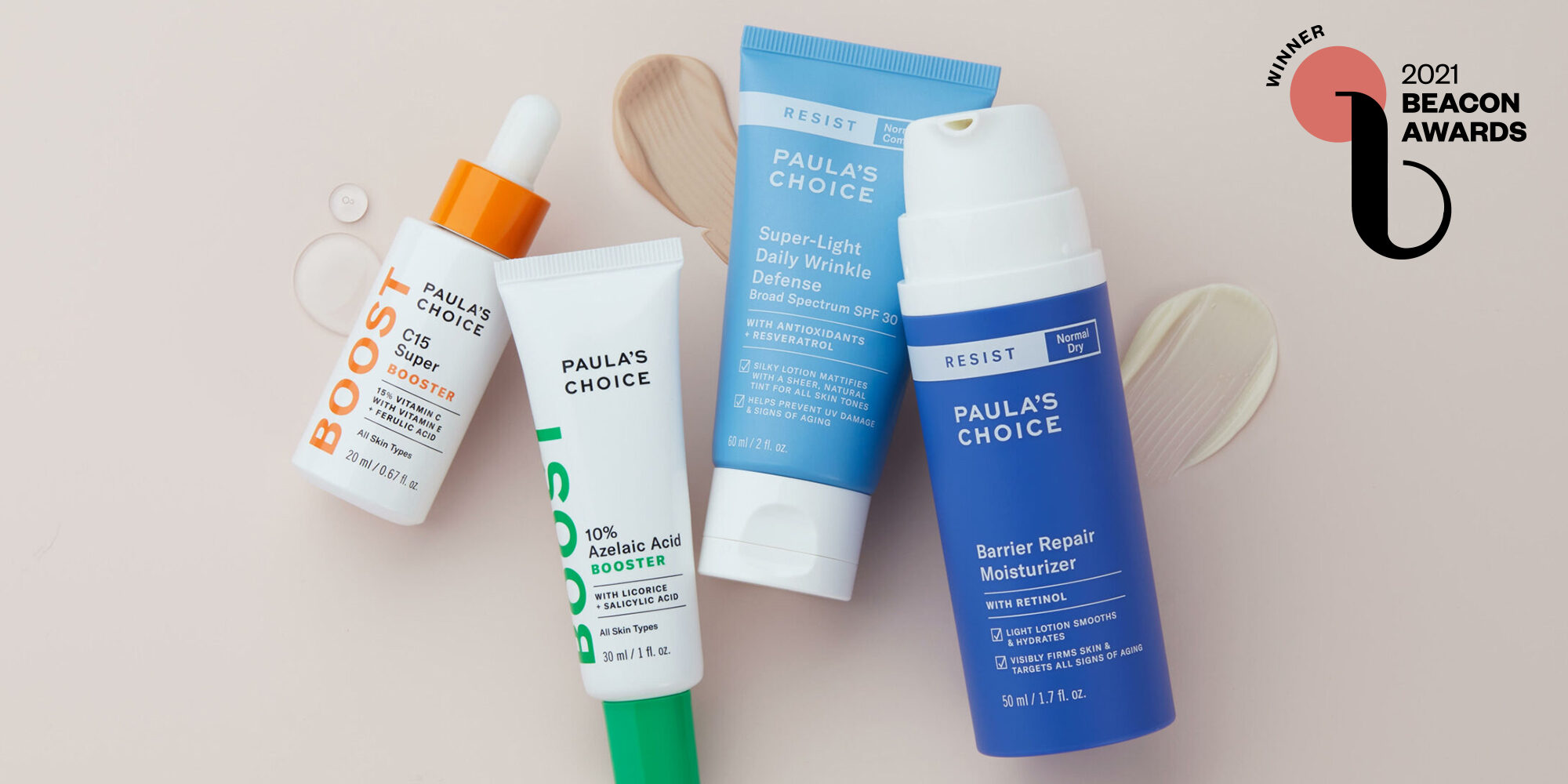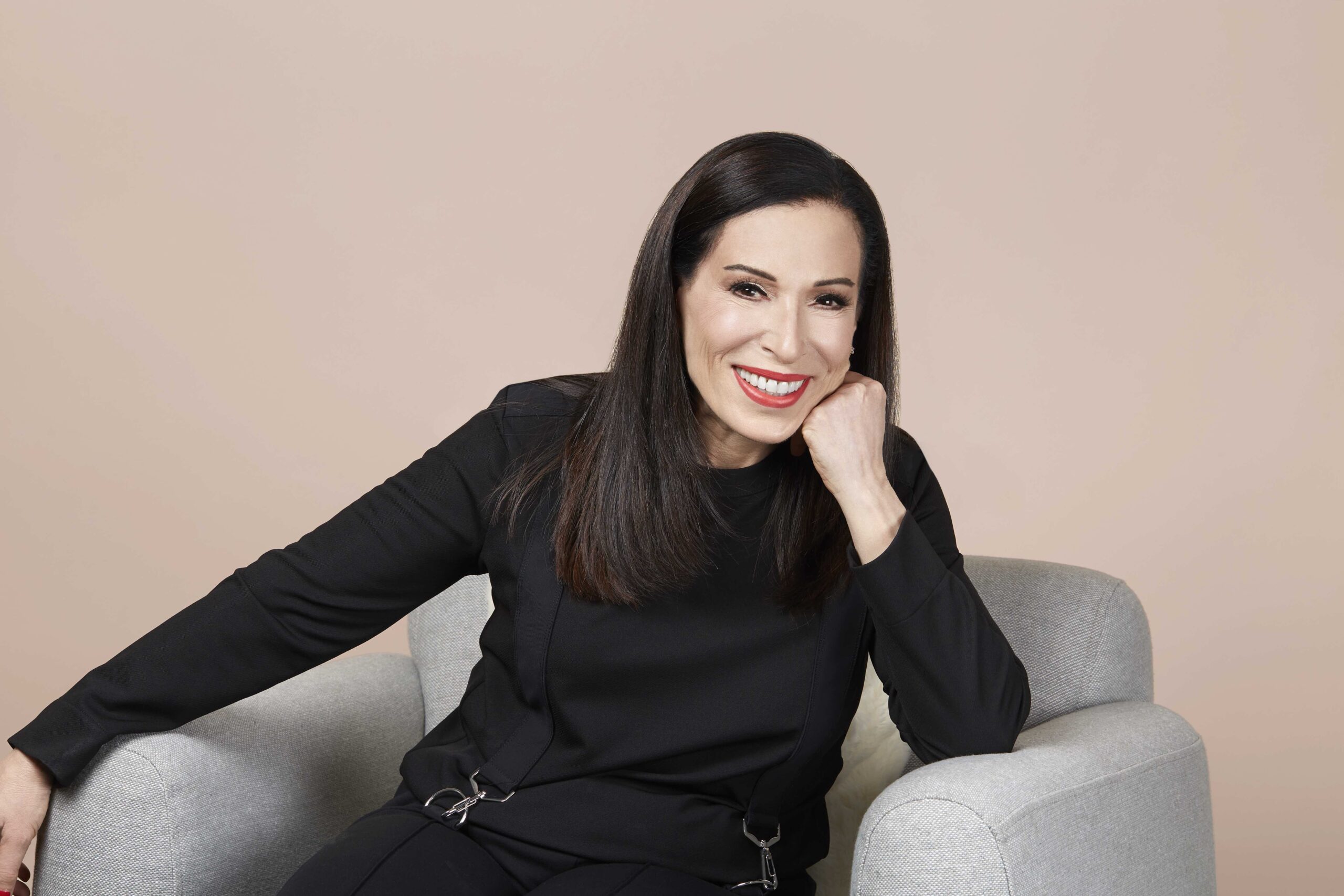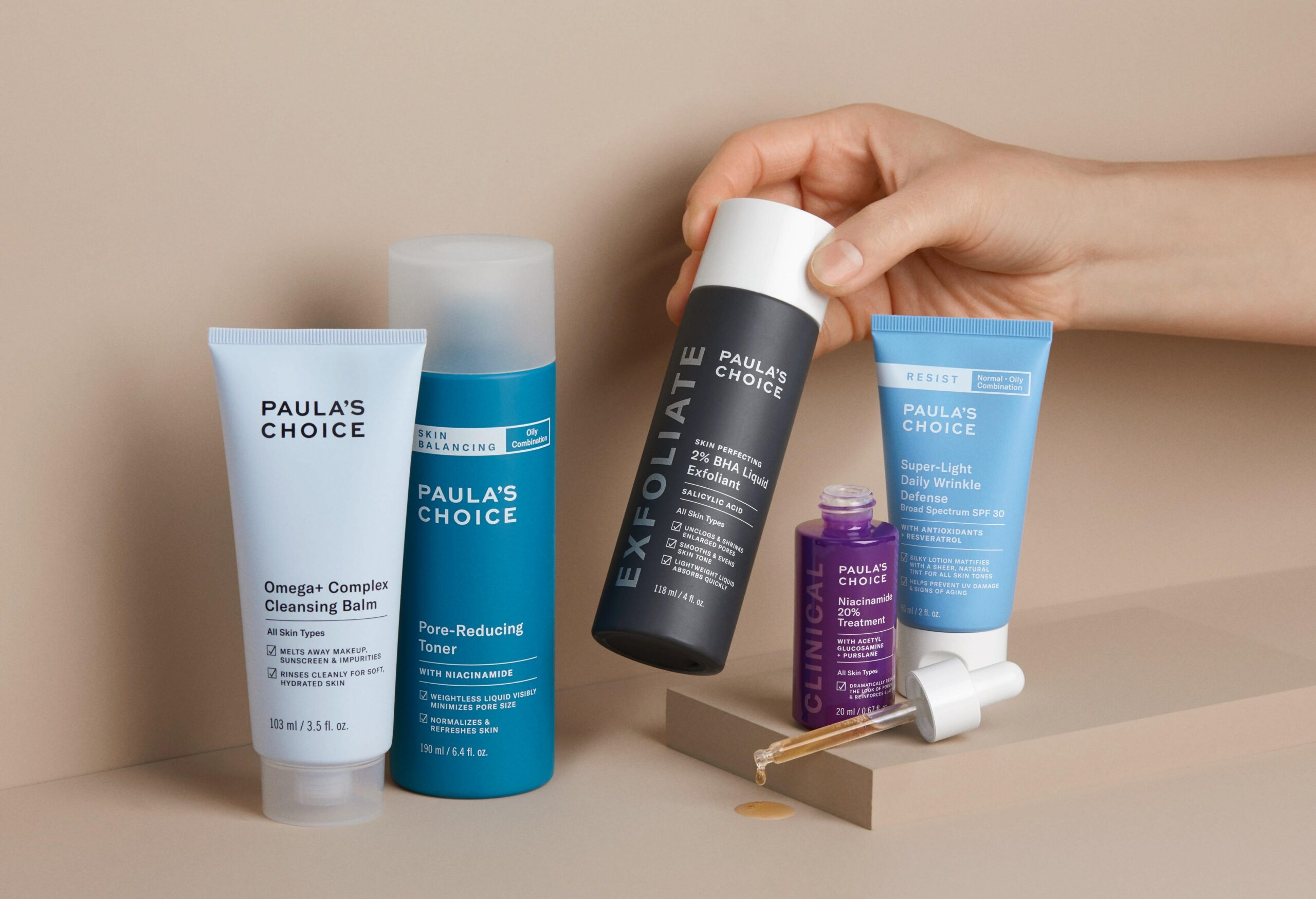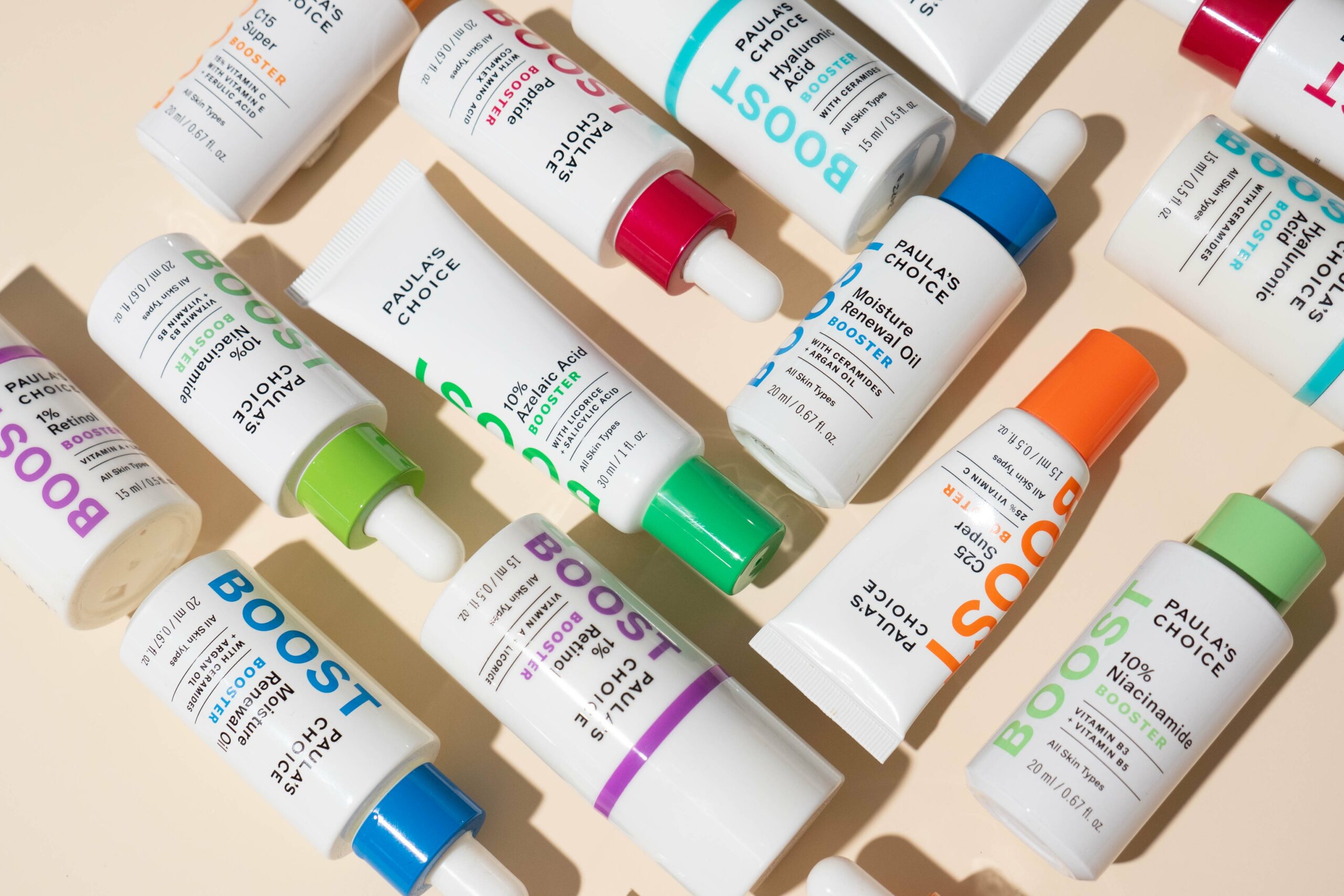
Paula’s Choice Founder Paula Begoun On Being Controversial, Selling At The Right Time, Clean Beauty And Cosmetic Procedures
When Unilever revealed in June last year that it was buying Paula’s Choice from private equity firm TA Associates for a reported $2 billion, several people were caught off guard. Specifically, the heavily male direct-to-consumer booster contingent was caught off guard. In a Twitter post at the time, Phillip Jackson, co-founder of media company Future Commerce, wrote, “weird how paula’s wasn’t reverberating in the DTC echo chamber.”
Outside of the DTC echo chamber, Paula’s Choice was reverberating with skintellectuals who adored the brand for its potent formulas (TikTok hit Skin Perfecting 2% BHA Liquid Exfoliant is praised as a “miracle in a bottle”), useful information (its skincare ingredient dictionary defines over 4,000 ingredients) and digital savvy. Before Paula’s Choice entered Sephora in 2021, it was largely sold online for over a quarter century. The combination of clicks and bricks catapulted its sales to an estimated $300 million.
Paula Begoun, the founder of Paula’s Choice known as “The Cosmetics Cop” and writer of more than 20 books on beauty topics, is as surprised as anyone (well, maybe not as surprised as DTC Twitter) that her brand achieved the exit it did. But she’s not surprised e-commerce is central to its growth. An Amazon shopper since 1999, she says, “Once people feel comfortable turning to the internet, once they see the pleasure in it and how some sites do it better than others—and I think we do skincare better than others, especially in terms our content—why go back?”
In a wide-ranging interview featuring a cameo from Paula’s Choice global education director Cynthia Short, Beauty Independent talked to Begoun, a 2021 Beacon Awards winner, about being the original disruptor in the beauty industry, her views on clean beauty, menopausal skincare and aesthetic procedures, and why she broke down crying after Unilever purchased Paula’s Choice.
You launched your brand online. Why did you go that route?
Begoun: A lot of people like saying I was a visionary. I was no visionary. I happened to have a husband at the time, now ex-husband, who knew about the internet, and I was already starting to use the internet so I didn’t have to be in libraries to do my research. So, I was familiar with the internet in terms of publications and scientific literature, and he was familiar with how you got on the internet.
The idea of not having to deal with brick-and-mortar and training people—trying to get somebody who maybe was selling shoes the week before to understand science, skin and skincare—sounded like the best of both worlds because I could do retail and content. I didn’t have to educate and deal with inventory, trying to get into hundreds or thousands of doors, and spend my time selling and marketing when really what I wanted to do was make great skincare products and provide information.
Was your ambition to grow a brand that would rival the big traditional brands?
Begoun: No, it wasn’t. I know it sounds naïve, but I didn’t even necessarily see it as a brand. I was just making skincare products with the best ingredients and the best formularies that research showed worked. I had no desire to be Estée Lauder or anybody else other than what I was doing and pay the rent and, eventually, when I owned a house, pay the mortgage and utilities, and have lunch. That the company grew to be as big as it did is shocking to me. It wasn’t the goal.
What was a major junction in the brand’s sales gaining traction?
Begoun: After 9/11, the world changed in many ways, but it changed for the internet because it was the first time people turned to the internet because they weren’t going into malls, they weren’t going into department stores. We were well established on the internet. We were well established in whatever social media existed at the time. We were known for the internet. We were easy to find. Most companies were scrambling to get internet presence, and we were already there. While September, like for everybody, was one of our worst months, going forward we had very high double-digit growth for the next I don’t know how many years.

When did you start getting interest from outside buyers like Bertram Capital, owner of the brand before TA Associates?
Begoun: In 2012, the company was at a turning point. I couldn’t run my company as a grassroots company the way it was, grow it, take on the number of employees and do what I needed to do write my books, do the online content, travel. What did you call me Cynthia?
Short: Sales prevention department
Begoun: I know this sounds strange to say, but it was beyond what I could handle. You go over a certain employee rate, and then all of a sudden all of these laws kick in, all kinds of HR stuff. Either I truncate growth or I sell and get people in who will let me do what I love and somebody else can deal with what I don’t like or I’m not very good at.
My team said, “People are going to find you no matter how much you try to make them not find you. They have already found you, and you are not even telling them about you.” That’s when we started looking for a private equity company that understood the internet, which was a challenge back in 2012. Everybody’s interested in skincare because the margins are so great, but [I wanted a buyer] that knew that the internet was a very powerful source for what my brand did best.
Short: We also had zero marketing budget. We only promoted the books, we had a website, and that was it. It worked really well.
Begoun: It was kind of accidental. It wasn’t a conscious strategy. It was what I was capable of, and it also made it easier to sell. I didn’t have a business degree. Who knew that being a solo owner, having no debt against the company and having conquered the internet channel made me very attractive acquisition?
What was it like to bring in Bertram as a private equity partner?
Begoun: It was agony and ecstasy. The buck didn’t stop with me. I’m a controlling person. I don’t play nice with others, which is why it’s really nice when you’re the only one who gets to say OK. Now, I had a minority share in the company, and the final decisions weren’t with me. What the deal was with the company is I had control over formulary, research, relations with the distributors, where I went in the world to meet with women and do presentations, but the marketing and how the website was handled was out of my control as it should have been because look what happened to the company. The growth of the company was wildfire.
You’ve been very outspoken about your approach to skincare. How have investors reacted to that?
Begoun: That’s why they bought me. I’ve been controversial my whole career from the first time I wrote my book back in 1984. Later in my career, I learned that I was something called the disruptor. Who knew? What they were attracted to was that I was controversial, that I was this disrupting brand. I still don’t quite get the concept that telling the truth, making fact be at the forefront of formulary, and that you don’t lie is disrupting, but, if that’s what they want to call it, that’s fine. But being controversial is what they were attracted to, and they called it being disrupting.
When you sold Paula’s Choice to Bertram, you knew there would be another exit down the line. Did you have a vision for the ultimate exit?
Begoun: No, I wasn’t involved. That’s one of the things about taking a minority position and getting out of the business end of the business and just focusing on what I loved. I wasn’t involved with the TA purchase and then the Unilever purchase, loved not being involved, to not have to go through what I went through with Bertram because I was obviously very involved in the Bertram sale because I was the CEO. For my employees, oh my god, it was hell for them. It just takes up time and energy. The whole process is exhausting, the due diligence, and I didn’t have to do shit.
After TA got involved, Paula’s Choice faced some complaints. What was your take on that?
Begoun: I’ve always had complaints, are you kidding me? Do you think that was the first time I had complaints? From the first time I wrote a book criticizing the cosmetics industry, from “Blue Eyeshadow Should Be Illegal” to “Don’t Go To The Cosmetics Counter Without Me,” to when I launched Paula’s Choice, every step of the way, I’ve had complaints. In fact, if I didn’t have complaints, I would be shocked. I wouldn’t even know if I was doing the right thing.
The notion that people want to hold me to a higher standard is something I embrace because that is meaningful for me. I often think, “Well, how come they don’t criticize that company for that?” This company is lying through their teeth, and they are challenging me. I’m thinking, “Really?” But the complaints are because of what I do and how I do it. Consumers or reporters hold me to a higher standard. I think, “OK, I got to work a little harder to remind them that every step of the way I’ve shown them that what they were worried about wasn’t true.” If anything, I have surpassed their concerns.

What was it like for you when Unilever bought the brand?
Begoun: I sobbed. Over the years, I watched other companies get purchased by fancy brands and for big price tags. Forgive my ego, I would think, “Really? I mean, I’m here longer, I do it better than they do it. In fact, they kind of copied me or they’re johnny-come-latelies.” I’m thinking, “What am I, chopped liver?”
In my less than business-like way, Unilever buys us, and we’re a historic cosmetic sale, and all I’m thinking is, “Nyah nyah nyah nyah nyah.” I’m sobbing like a baby going, after all these years of trying to make a difference, I still can barely wrap my brain around it. I don’t know where it will take us. There are all kinds of stories of these kind of purchases, but, at this moment, all I can do is stutter and say I sobbed and my heart burst.
What role do you want to play in the brand today and going forward?
Begoun: I’m not so sure. I’m 68 years old. I think I need a nap. The company has asked me to do what I always do and, by nature, I do what I always do. I always am doing skincare research, which takes you down many paths, and speaking to people like you, speaking to groups of people. So, we will see where it goes. In times of COVID, things are different and the purchase is still new, so it’s unfolding.
How can a brand maintain its integrity and mission post-acquisition?
Begoun: Keep me around. One of the things about Unilever that I was very excited about, even though, like I said, my opinion didn’t account for anything, is that Unilever, when they acquire a company, their idea is not to blend us in with other companies. Their legal department might take over some of the legal stuff, but, in terms of development, marketing and content, they don’t want to get involved. They bought us because they can’t do what we do.
My core people who helped me grow my company who have been with me for 15 to 20 years are still at Paula’s Choice in significant positions, and I’m very close with them. Because they understand the beliefs, core concepts, ethics, morality and what the mission has always been of the company, I think we have a better shot of holding to that than a lot of companies do.
You’ve been a critic of prizing natural ingredients in skincare. Explain that to us.
Begoun: Well, it’s so bullshit. I don’t get it. People drive cars. People fly on planes. People take medicine. People have surgery. The dichotomy goes beyond me. The basic fact is the best skincare can’t be done all naturally. It just can’t. All natural ingredients, it’s very hard to keep them stable. It’s very hard to preserve them. How long does a head of lettuce last in your refrigerator?
And it’s very hard to get them into skin and where you need them to go to do what you need to them to do. There is no natural form of retinol. There is no natural form of azelaic acid. There is no natural form of niacinamide. There is no natural form of AHA or BHA. There is no natural form of benzoyl peroxide. The most stable antioxidants are lab-created because antioxidants by their nature break down in the presence of air. So, to make them more stable, they’re created in a lab.
It’s not that there aren’t great natural ingredients, but there are a lot of lab-created ingredients that are quite brilliant. Then, there are lab-created ingredients that get a bad rap like parabens. There’s no research supporting parabens in skincare are a problem. None, it’s ridiculous. You can’t make a natural sunscreen and get an SPF rating. Even sunscreens with mineral-based ingredients, those aren’t natural formularies.
You can’t take the best care of your skin just in the world of natural. I don’t even quite know what “clean” means. I guess that it was a good buzzword for a while. I think what women have learned over time is that all natural doesn’t get them great skincare. There are good and bad ingredients that are natural, and there are good and bad ingredients that are lab-created. To suggest that only natural is good is bad skincare.
You don’t believe skincare brands should promise to reverse the clock 10, 15 or 20 years, but you look great. You would be proof that skincare products can make people look 10, 15 or 20 years younger.
Begoun: Oh no, let’s be clear. I know when people look at me what parts of my looking young is about my skincare products. There’s no question that aspects of my skin texture, the lack of brown spots [are from skincare], but there’s no way you get to my age, and you don’t have cosmetic procedures or facelifts. You just can’t have a jawline or a neckline without procedures, you can’t. I love when you hear celebrities say, “Oh, I’ve never had surgery,” and they’re in their 40s or 50s and their forehead doesn’t move and you just compare their lips from two years ago to today.
And I don’t know why that’s a problem. I don’t know why women or men should be embarrassed by it. When I’ve had procedures, particularly when I’ve had a facelift, people say, “Oh, you don’t need a facelift,” and I always have my response, “I should wait until my jaw is hanging down on my chest?” I know that a lot of times women wait too long, and they look over-pulled and overdone or their skin is so damaged by the sun they get a pasty almost ghostlike look to their skin when they have procedures done.
I’m not advocating people get procedures. What I’m saying is that I know the limitation of skincare. I know the brilliance of skincare. The sooner you do brilliant skincare and you stay with it and you pay attention to sun protection and pollution protection, I know how successful your skin can look and then what can add to it if you do choose to do procedures. Anybody who works for a brand or owns a brand, and they’re over 50 or 60 and they say it’s because of their products, they’re fibbing through their teeth.

What has been the most impactful cosmetic procedure you’ve had?
Begoun: My facelift. Well, there are three things that work in tandem: fillers, Botox and facelift. It’s never one thing just because of how the face ages. Some doctors try to take care of the nasolabial folds, you know the folds that go from the nose to the corners of the mouth with a facelift, but that over folds the face and does not look good. So, the combination of fillers, lower facelift and Botox are probably the best combination.
There’s been a lot of movement now in menopausal skincare. What do you think of that?
Begoun: I think it’s bullshit because, if you waited until menopause, you have waited too long. What is that about? I’m thinking, “What women doesn’t know somewhere in their 40s that they’ve already started down the road of perimenopause or the beginning stages of menopause?” They start noticing changes in their period, start having flashes. As a woman in her 60s, I know that I started down the road of the beginning stages of losing estrogen in my mid-to-late 30s and, for sure, by the time I was in 50s, I was having noticeable shifts in my estrogen.
If you wait until you are menopausal, meaning the cessation of your period, you have waited too long, and you are doing your skin a disservice. That’s not to say that, if you give your skin estrogen or phytoestrogen, you can’t get improvement. Women say to me, “I’m 40 or 50, and I’m starting to see my skin age,” and I’m thinking, “Really, you weren’t thinking that was going to happen? It didn’t occur to you in your 20s or 30s that that might happen?” When people ask me when should they start using anti-aging products, I always say from birth. You don’t wait until you are 40 or 50 and say, “I wonder what I should do to keep my skin from aging.” Better late than never, but 20 years ago would have been far better.
Estrogen, the real stuff, can do phenomenal things for women going through perimenopause and even if they are menopausal, but I can’t say it strong enough that doing it sooner than later means you don’t have to see your skin get thinner, get crepey with your veins popping through the way menopausal skin does.
What advice do you have for entrepreneurs building skincare brands today?
Begoun: Oh, I’m the last person to ask. I’m an old lady. I’m a formulator. I’m a scientist. I don’t understand the world of marketing today, but what I can say is that you have to make the best product following the research and not the myths. Just because it’s popular, just because women want to hear it doesn’t mean you should say it. It’s easy to lie. It’s easy to mislead. I know what women want to hear, but, if it’s not true, don’t do it.
The fundamental concept of Paula’s Choice—I used it have it sitting on my desk—is don’t do to anybody else what you don’t want them to do to you. If you don’t want someone to lie to you, don’t lie to somebody else. If you don’t want someone to mislead you, don’t mislead somebody else. If you don’t want to use a skincare product that really doesn’t do what it says it does, don’t do that to somebody else.
This interview has been edited for brevity and clarity.





Leave a Reply
You must be logged in to post a comment.